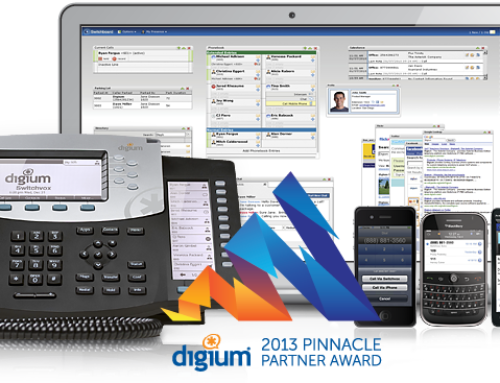A phone number is a unique identifier that allows individuals and businesses to reach each other. Traditionally, these numbers have been associated with landline phones and cellular devices, and are typically assigned by telecom service providers.
However, with the advent of internet technology, a new type of phone number has emerged, known as a Voice over Internet Protocol (VoIP) phone number. This modern communication tool is revolutionizing the way businesses operate, offering unprecedented flexibility and functionality.
What is a VoIP phone number?
A VoIP phone number is a telephone number that is linked to an internet-based phone system rather than a traditional landline or cellular network. Unlike traditional phone numbers that are connected to a physical location, a VoIP number isn’t tied to a specific geographic area, allowing individuals and businesses to establish a presence in different regions without the need for physical phone lines.
VoIP phone numbers work in a straightforward manner. When someone dials a VoIP number, the call is directed through the internet to a server or cloud-based phone system, and from there, it is routed to the recipient’s device.
Why should businesses use a VoIP phone number?
There are several compelling reasons why businesses should set up a VoIP phone number:
Bigger cost savings
VoIP phone numbers can help businesses save significant amounts of money on their communication expenses. As all calls are made over the internet, there is no need for expensive landline or cellular services. Long-distance and international calls are also significantly cheaper with VoIP, making it an excellent choice for businesses with global operations and/or remote workers.
Moreover, there is no need to spend on expensive on-premises phone equipment, maintenance, or infrastructure upgrades. If they want to, companies can run VoIP phone systems using their existing hardware or as software on their computers or mobile devices, thereby eliminating unnecessary hardware investments.
Greater accessibility
VoIP phone numbers offer greater accessibility and ease of use for both employees and customers. With VoIP, employees don’t have to be in a single physical location to make and receive business calls. As long as they have a stable internet connection, they can connect to their virtual phone system from anywhere in the world and communicate with anyone.
Meanwhile, for customers and other incoming callers, VoIP numbers offer direct access to your business, making it easier for them to reach you. It doesn’t matter if a sales person isn’t in the office to receive calls; their virtual phone will still ring, and they can answer the call from any company-registered device. This ensures that no important call is missed.
Increased flexibility
A major shortcoming of traditional phone systems is their lack of flexibility. They are limited to a specific location, and any changes or upgrades require considerable investments and downtime. For instance, just to set up one additional line, businesses may have to install new wiring, purchase new hardware, and wait for technicians to configure everything. This is not only costly but also time-consuming, and can even force a business to sit through some downtime while they wait for the phone system to be installed.
In contrast, VoIP phone numbers are digital and therefore offer unparalleled flexibility for businesses. With just a few clicks, you can add additional lines, extensions, or even expand to new locations without any major disruptions to your operations.
Area code selection
Beyond the flexibility of adding additional lines, VoIP phone numbers allow businesses to choose different area codes for each line. This feature is incredibly useful for businesses that want a professional presence in a specific area code, such as a company headquartered in one city but with clients or partners in another. With VoIP numbers, companies can select an area code that aligns with their target audience and build credibility with local customers.
Multilocation companies may also benefit from this feature, as they can have local phone numbers in each area where they have a physical presence, making it easier for customers to reach them without incurring long-distance charges.
Portable numbers
Another defining feature of VoIP phone numbers is their portability. Since VoIP numbers are not tied to a specific physical address, your phone number stays the same even if you move offices or relocate. Not having to change your contact information can save businesses the hassle and confusion of updating customers, clients, and partners about your new number.
Access to toll-free numbers
VoIP numbers also offer businesses the option to obtain toll-free numbers for their customer support lines. Toll-free numbers are free to call and can help businesses build a more professional image while also providing convenience for customers. These toll-free numbers are also portable and can be used across different locations, giving businesses even more flexibility.
What are VoIP numbers used for?
When it comes to business communication, VoIP phone numbers are highly versatile and can be used for various purposes. Here are some of the most common ways businesses can utilize VoIP numbers:
- Virtual offices: Businesses can have a virtual presence in multiple locations using VoIP numbers. This is especially useful for companies that want to expand their reach without establishing physical offices in every location.
- Hybrid work: With VoIP numbers, employees won’t miss important calls even when they’re not in the office. In fact, when callers dial a VoIP number, all registered devices will ring simultaneously, ensuring that someone is always available to answer the call. Call routing features can also be utilized to redirect calls to different devices or numbers based on customizable rules and schedules, which means employees can work from home or on the go without any disruptions.
- Customer support: Many companies use VoIP for their customer support lines, as it offers features such as call routing, call recording, and voicemail-to-email.
- Marketing and sales: VoIP numbers can be used to track marketing and sales campaigns, allowing businesses to analyze their effectiveness by monitoring call volume and customer interactions.
Set up your VoIP phone number today
There are a lot of technical details to work out when setting up a VoIP phone system and number. You need to determine the number of lines and extensions you need, select the right equipment, choose a reputable VoIP provider, acquire the desired phone number(s), optimize your networks and internet bandwidth for communications, and test the system’s functionality.
Fortunately, there are many VoIP providers and consultants available to help you through this process and ensure a smooth transition to VoIP. Dynamic Solutions Group, in particular, can guide you through the entire process, including selecting the right VoIP system and features for your business’s unique needs. Contact us today to set up your own VoIP phone number.






